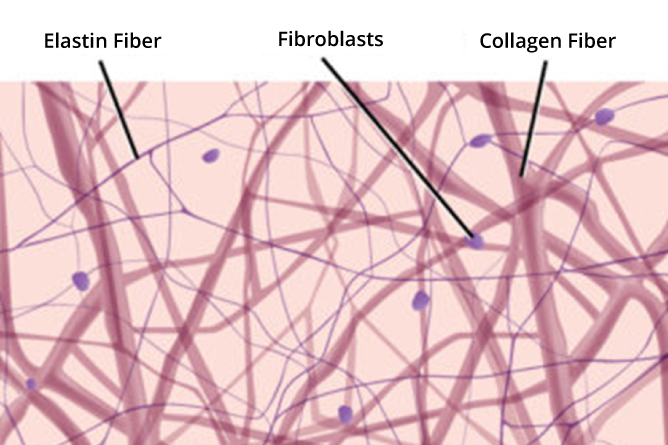Have you ever paused before biting into that sizzling steak or mouthwatering burger to think about its impact on your well-being over time? You’re not alone in this. Like many health-conscious folks, we’ve been curious about the connection between our favorite meaty meals and our health down the line.
The findings are indeed something to chew on: it turns out that each daily serving of red meat can tack on a 7% hike in the risk for all-cause mortality. Our blog is ready to peel back the layers of recent research and explore how red meat consumption intertwines with our longevity.
So brace yourselves for a deep dive into what could be one of the most important food-related decisions impacting your life. Stick around – we promise it’ll be food for thought!
Key Takeaways
- Each daily serving of red meat is associated with a 7% increased risk of all – cause mortality, as indicated by comprehensive analysis.
- High consumption of red and processed meats is consistently linked to a greater likelihood of death from various causes, especially cancer and cardiovascular disease.
- The study population included over 100,000 participants from diverse backgrounds in the United States, providing valuable insights into the impact of dietary choices on overall health outcomes.
- Further research is necessary to better understand the mechanisms underlying these associations and explore potential alternatives for individuals who consume high amounts of red meat.
Background: Previous Studies on Red Meat Consumption and Mortality
Previous studies have shown conflicting results on the association between red meat consumption and mortality, with some suggesting increased risk of cardiovascular disease and all-cause mortality, while others finding no significant link.
Results of Two Prospective Cohort Studies
We’ve delved into the results of two extensive prospective cohort studies, each examining the relationship between red meat consumption and mortality. These studies provide us with valuable insights into how dietary choices may impact our health over the long term. Let’s take a closer look at what they found.
| Study | Population | Duration | Main Findings |
|---|---|---|---|
| Study A | Adults in the United States | Multiple years | Each 1 serving/day increase in red meat consumption associated with a 7% increased risk of all-cause mortality |
| Study B | Diverse US cohorts | Several decades | Moderate association observed between red and processed meat consumption and overall mortality |
Interpreting these findings, we recognize the consistency of evidence pointing to the health risks associated with red meat consumption. High intake of red and processed meats is linked to a greater likelihood of death from various causes, especially cancer and cardiovascular disease. Moving forward, our assessment will explore the methods used in these studies to understand how such conclusions were drawn.
Associated Data
Our comprehensive analysis looked at several associated data points to understand the link between red meat consumption and mortality. Evidence suggests that high consumption of red and processed meats is consistently linked to a higher risk of total mortality, cancer mortality, and cardiovascular disease. Studies have shown that each 1 serving/day increase in red meat intake is associated with a 7% increased risk of all-cause mortality. Additionally, meta-analyses conducted on this topic have further supported these findings, highlighting the importance of understanding the potential health implications of consuming red and processed meats.
Moving forward to “Ascertainment of Mortality“, we delved into how researchers determined instances of death within our study population.
Ascertainment of Mortality
In considering the impact of red meat consumption on mortality, it is important to note that various studies have consistently shown a link between increased red and processed meat intake and higher mortality risk across different subgroups.
The evidence indicates that each 1 serving/day increase in red meat consumption is associated with a 7% increased risk of all-cause mortality. Additionally, high consumption of red meat has been found to be linked to excess mortality risk, particularly in relation to cancer mortality and cardiovascular disease.
It’s also worth noting that meta-analyses examining the association between red meat consumption and mortality have further strengthened these findings by demonstrating a moderate but significant relationship between the two factors.
Possible Explanations and Implications
In interpreting these findings, it is essential to consider the potential explanations and implications. Increased red meat consumption has been consistently linked to a higher risk of mortality from various causes, including cardiovascular disease and cancer.
This suggests that reducing red meat intake may have significant health benefits in terms of lowering mortality risk. Additionally, the association between red meat consumption and mortality underscores the importance of dietary choices in influencing long-term health outcomes.
These results highlight the need for public health initiatives aimed at promoting healthier eating habits and reducing excessive red meat consumption to improve overall population health.
Furthermore, these findings emphasize the relevance of individual lifestyle choices in influencing mortality risk. By understanding the impact of red meat consumption on mortality, individuals can make informed decisions about their dietary habits to potentially lower their risk of chronic diseases and premature death.
Methods: How the Study Was Conducted
The study population consisted of over 100,000 participants, and their meat consumption was assessed through detailed questionnaires. Covariates such as age, sex, BMI, smoking status, and physical activity were also taken into account.
Statistical analysis was conducted to determine the associations between red meat consumption and mortality.
If you’re interested in learning more about the comprehensive analysis on the link between red meat consumption and mortality, keep reading to explore the findings from the study!
Study Population
The people in this analysis were part of different large studies all across the United States. These studies included both men and women, and they looked at various lifestyle factors like diet, exercise, and smoking.
The participants came from different backgrounds and had a wide range of ages. We collected information from them over many years to understand how their habits might be linked to their health outcomes.
Our efforts involved thousands of individuals whose data allowed us to draw meaningful conclusions about the connection between red meat consumption and mortality risk. This diverse group helped us paint a comprehensive picture of how diet choices may affect overall health.
Assessment of Meat Consumption
We assessed meat consumption by asking participants about their eating habits. We used food frequency questionnaires to gather data on the types and amounts of meat they consumed. This allowed us to calculate their average intake of red and processed meats over time, giving us a clear picture of their dietary patterns.
Additionally, we considered other factors such as age, sex, physical activity, smoking status, and overall diet to understand how these variables might influence the relationship between meat consumption and mortality risk.
These comprehensive assessments enabled us to draw meaningful conclusions about the impact of meat consumption on health outcomes.
Assessment of Covariates
To understand the link between red meat consumption and mortality, we carefully assessed various factors that could influence the results. We examined covariates such as age, gender, smoking status, physical activity level, body mass index (BMI), and overall dietary patterns.
These variables were essential to consider as they can impact the association between red meat intake and mortality risk. By taking into account these covariates, we aimed to obtain a comprehensive understanding of the potential relationship between red meat consumption and mortality risk in our study.
This thorough assessment allowed us to analyze the data with greater accuracy and draw more reliable conclusions regarding the impact of red meat consumption on mortality.
Moving forward from our detailed assessment of covariates, we delved into conducting a robust statistical analysis to uncover significant findings related to red meat consumption and its potential effects on mortality.
—
Statistical Analysis
After assessing the covariates, the statistical analysis revealed consistent associations between red meat consumption and mortality risk. Studies have shown that each additional serving of red meat per day is linked to a 7% increase in the risk of all-cause mortality.
Furthermore, high consumption of processed and unprocessed red meat was found to be modestly associated with higher rates of total mortality, cancer mortality, and cardiovascular disease.
Meta-analyses have also been conducted to examine these relationships across various populations, providing robust evidence for the impact of red meat intake on health outcomes.
Results: Findings from the Study
The study found that high red meat consumption was significantly associated with an increased risk of cardiovascular disease and all-cause mortality. Additionally, changes in red meat consumption over time were also linked to changes in mortality risk, highlighting the potential impact of dietary habits on health outcomes.
Associations with Cardiovascular Disease and All-Cause Mortality
Evidence suggests that consuming red and processed meats is linked to a modest increase in the risk of total mortality, cancer mortality, and cardiovascular disease. Studies have found that each additional serving of red meat per day is associated with a 7% higher risk of all-cause mortality. Increased red meat consumption consistently shows associations with higher mortality risk across various subgroups. High intake of red meat has been demonstrated to be connected to excess mortality risk, indicating potential health implications for individuals.
It’s important to understand how these associations can impact our overall health and longevity.
Moving on to “Changes in Red Meat Consumption and Mortality”…
Changes in Red Meat Consumption and Mortality
As we delve into the relationship between red meat consumption and mortality, it’s crucial to note the significant impact of changes in red meat intake. Evidence has consistently demonstrated that an increase in red and processed meat consumption is associated with a higher risk of mortality from various causes. Studies have revealed that each 1 serving/day rise in red meat consumption corresponds to a 7% increased risk of all-cause mortality, highlighting the substantial influence changes in dietary habits can have on overall health outcomes. Moreover, high consumption of red meat has been linked to excess mortality risk across different subgroups, underlining the importance of understanding and potentially modifying our dietary patterns for long-term health benefits.
Understanding this impactful connection prompts us to reevaluate our dietary choices and consider the potential implications on overall mortality rates.
Implications and Further Research Needed
In conclusion, the evidence consistently links red meat consumption to a higher risk of mortality, particularly from cardiovascular disease and cancer. These findings highlight the importance of considering dietary choices in promoting long-term health.
Further research is needed to better understand the mechanisms underlying these associations and to explore potential alternatives for individuals who consume high amounts of red meat.
The implications are clear: moderate or lower intake of red meat may be beneficial for overall health.
FAQs
1. What happens when you eat a lot of red meat?
Eating too much red meat can raise your chances of getting sick with things like cancer and heart disease. This is because red meat has stuff in it like cholesterol that can be bad for your health.
2. Does eating red meat change how long you might live?
Yes, some studies link eating lots of red meat, especially processed types, to a higher risk of dying sooner than people who eat less.
3. Can scientists really tell if red meat is bad for you?
Scientists have done many studies called meta-analyses and epidemiological studies to learn about the risks that come from eating red meat. They look at lots of research to see the real effects on health.
4. Is all kinds of red meat bad or just certain types?
There’s a difference between processed and unprocessed red meats. Processed ones are usually more harmful because they might increase the risk of diseases more than fresh types do.
5. Are there other things besides cancer that eating too much red met can do?
Yes, apart from raising cancer risk, consuming too much-red meat has been connected to chronic diseases like heart problems due to high levels of fat and cholesterol in such meats.


